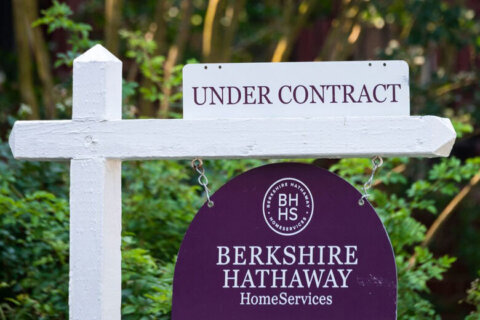It is tax season, and the robocall tax scams are in full swing.
Reston, Virginia-based Transaction Network Services, which regularly analyzes more than 1.5 billion daily call events across hundreds of carrier networks to identify robocall trends, said residents in the D.C. metro have already received nearly 400,000 tax-related robocalls since the start of the year.
Some of those calls pretend, convincingly, to be a real person.
You answer the phone and, as an example, the prerecorded voice says, “Hello, I’m Linda, an assistant to the director of the National Tax Relief program. How’s your day going so far?”
Then, there is a deliberate pause, baiting you to respond.
If you do, the call responds, “Alright. I’ve been assigned to personally reach out to you…,” and the scam has begun.
“What they’re doing is collecting your voice, and hearing what you say, and if you answer the right way, they can bring that into their call center to enable a real person to pick up the call,” said John Haraburda, robocall data expert at Transaction Network Services.
The intent of some of these tax scam robocalls is not only to route you to a person, but to use AI to record you. The more you say, the better the scam.
“They are collecting recordings of your voice to then be able to artificially create your voice for a spam call,” Haraburda said.
Another perennial tax-related scam is the ghost tax preparer, who will take a consumer’s tax-related documents promising a big refund in exchange for a fee.
They may require a cash payment. They may claim fake deductions. They may direct refunds into their own bank account. And they do not sign the return, either physically or digitally, as required by the IRS. Then they disappear after stealing money or personal information.
Transaction Network Services has long advocated for robust systems in place by carriers to identify spam and scam calls, and they have put them in place. Service providers have spent billions on networks, including on federal guidelines to improve the caller ID you are getting on your phone. Among them, verified calls that identify whether there has been a secure connection from the calling party.
“If the consumer is aware of what’s being shown to them when they look at the phone, they will see prompts of potential spam, potential scams or even notifications of robocallers and telemarketers that they can use to help guide them to determine whether to even answer the phone call or not,” Haraburda said.
Get breaking news and daily headlines delivered to your email inbox by signing up here.
© 2024 WTOP. All Rights Reserved. This website is not intended for users located within the European Economic Area.








